The Best Sherry Vinegar Substitutes: 13 Alternatives
Fear not! We will dive into the world of sherry vinegar substitutes and introduce you to 13 delicious alternatives that can elevate your recipes, and how to use them.
1. Rice Vinegar:
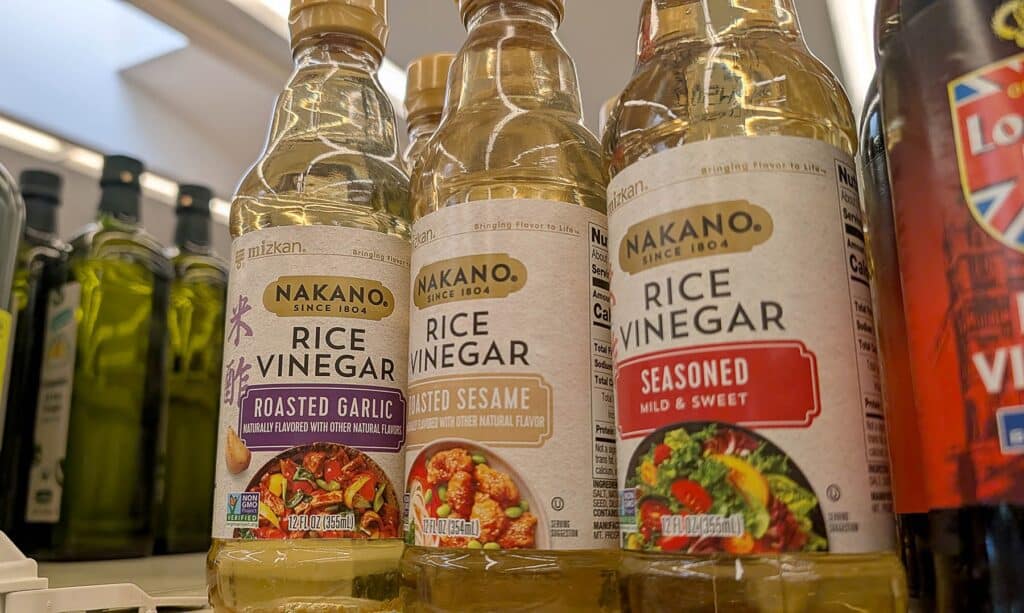
Rice vinegar, derived from fermented rice, is a fantastic substitute for sherry vinegar. It offers a milder flavor profile with a subtle tanginess and hints of sweetness. While it lacks the wine undertones of sherry vinegar, rice vinegar’s delicate taste makes it an excellent choice for salad dressings, sushi rice, and marinades.
- How to substitute: Use 1:1 for sherry vinegar. If the dish needs a touch more depth, add a tiny pinch of sugar per tablespoon, or a few drops of soy sauce.
- Best uses: Sushi rice, slaws, light vinaigrettes, quick pickles, sesame-ginger dressings.
- Skip it when: You want wine-like complexity or nutty, oxidative notes.
2. Red Wine Vinegar:
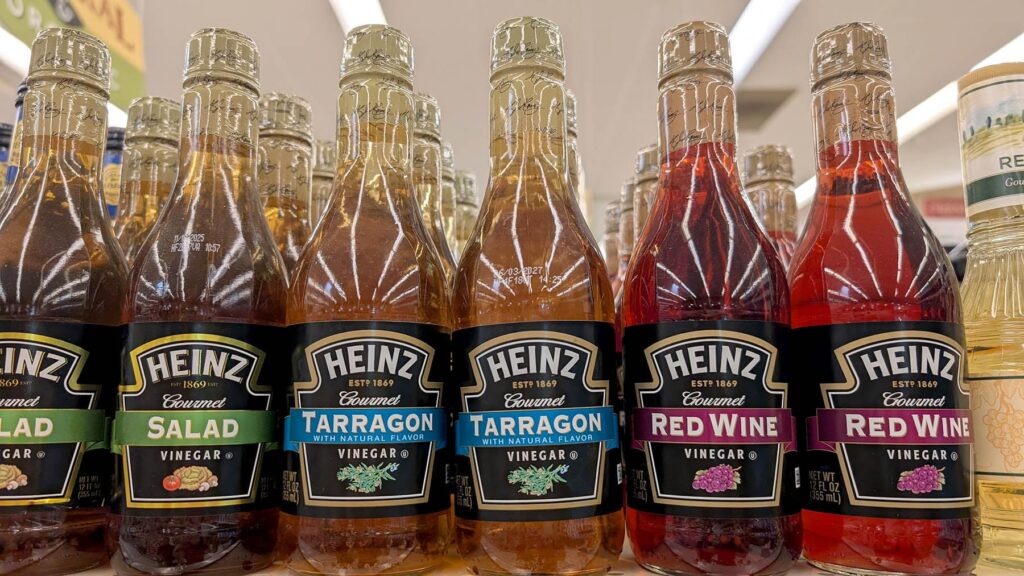
If you desire a bolder flavor similar to sherry vinegar, red wine vinegar is a worthy substitute. It shares the acidic punch and fruity undertones found in sherry vinegar, although with a slightly different character. Red wine vinegar is ideal for salad dressings, pickling, and sauces, especially those featuring robust ingredients like red meats and rich vegetables.
- How to substitute: Use 1:1. If it reads a bit sharp, soften with a small pinch of sugar.
- Best uses: Hearty greens, pickled onions, pan sauces for beef or lamb, lentil salads, tomato-forward dressings.
- Skip it when: The dish is delicate, like mild seafood or tender herbs that can be overshadowed.
3. Apple Cider Vinegar:
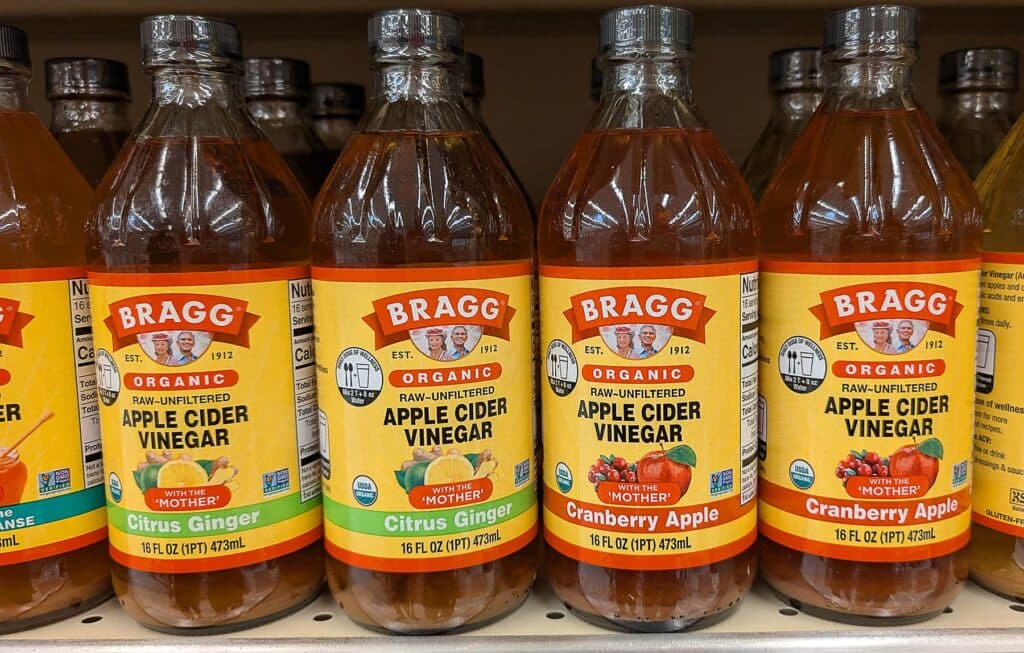
With its distinct fruity and slightly sweet taste, apple cider vinegar can be a delightful alternative to sherry vinegar. It adds a touch of apple flavor to dishes while still providing the necessary acidity. Apple cider vinegar works well in marinades, chutneys, and sweet and sour sauces.
- How to substitute: Start at 3:4 compared to sherry vinegar, then adjust to taste. If using 1:1, reduce other sweeteners slightly.
- Best uses: Pork and poultry marinades, chutneys, slaws, barbecue sauces, braises with apples or onions.
- Skip it when: A distinct apple note would clash, for example with soy-heavy or fish-focused dishes.
4. Balsamic Vinegar:
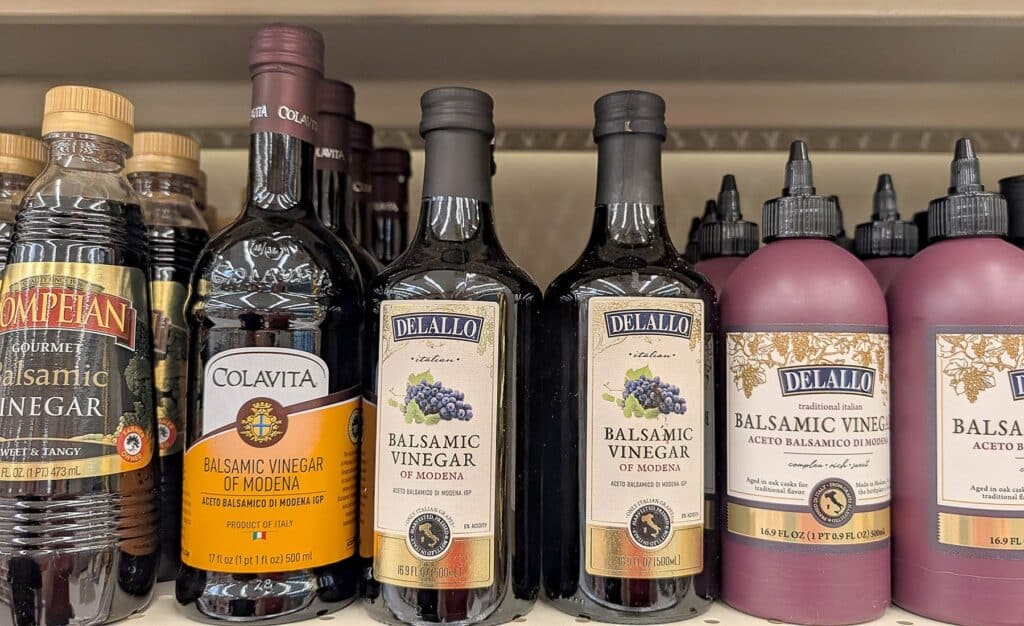
While balsamic vinegar differs significantly from sherry vinegar in terms of flavor, its complexity and versatility make it an intriguing substitute. Known for its rich, sweet, and slightly acidic taste, balsamic vinegar adds depth to dressings, glazes, and reductions. Keep in mind that its strong flavor might overpower more delicate dishes.
- How to substitute: Use half the amount, or cut balsamic 1:1 with red wine vinegar or water to reduce sweetness.
- Best uses: Glazes, reductions, roasted vegetables, strawberries, mozzarella and tomato salads.
- Skip it when: You need something light and crisp, like for delicate greens or seafood.
5. Black Vinegar:
Popular in Chinese cuisine, black vinegar offers a unique alternative to sherry vinegar. It has a deep, malty flavor with a touch of sweetness and sourness. Black vinegar pairs exceptionally well with stir-fries, braised dishes, and dipping sauces, lending a distinct umami note to your recipes.
- How to substitute: Use 1:1. If it tastes too malty, blend 1:1 with rice vinegar.
- Best uses: Dumpling dipping sauces, stir-fries, braised meats, noodle salads, smashed cucumber salads.
- Skip it when: The recipe is Western and dairy-based, or when a clean, neutral acid is required.
6. Lemon Juice:
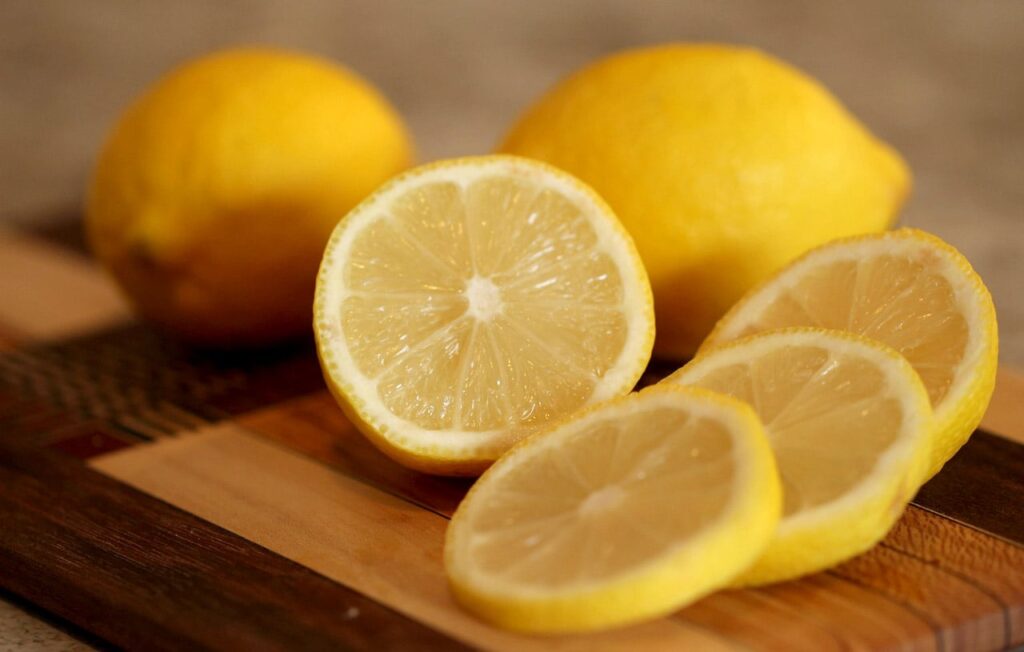
When you need a quick and accessible substitute, lemon juice can step in for sherry vinegar. Its bright acidity and citrusy flavor provide a refreshing twist to dressings, marinades, and sauces. Keep in mind that lemon juice lacks the complexity of sherry vinegar, so you might want to experiment with other ingredients to balance the flavor.
- How to substitute: Use about half the amount, then taste. Add a tiny pinch of sugar and, if available, a splash of dry white wine to mimic depth.
- Best uses: Seafood, herb-heavy dressings, grilled vegetables, deglazing greens.
- Skip it when: You want a wine-like profile or subtle caramel notes.
7. White Vinegar:
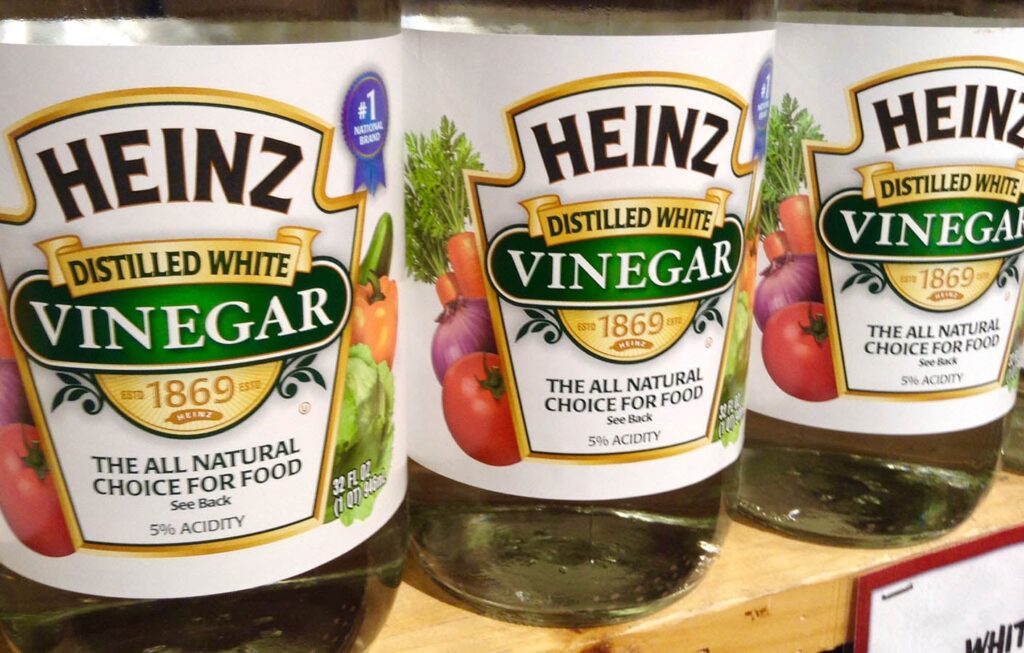
While white vinegar lacks the nuanced flavor of sherry vinegar, its clean, sharp acidity can be a suitable replacement in some recipes. White vinegar is a common pantry staple, often used in pickling, preserving, and canning. However, due to its potent and pungent flavor, it should be used sparingly or mixed with other ingredients to mellow its impact.
- How to substitute: Use 1/2 to 3/4 the amount. Temper with a splash of water and a small pinch of sugar.
- Best uses: Pickling brines, ketchup and mustard bases, quick slaws, hot sauces.
- Skip it when: The acid will be tasted straight in a raw salad or finishing splash.
8. Champagne Vinegar:
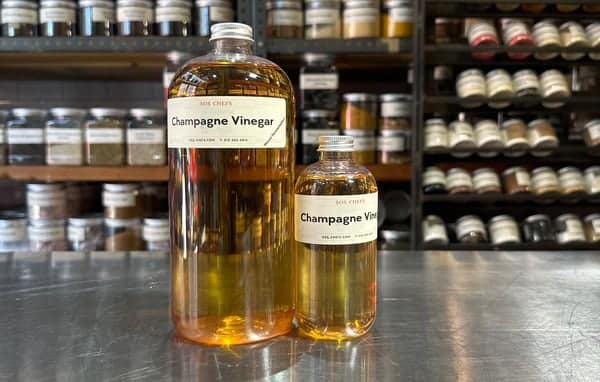
If you are searching for a lighter and more delicate alternative to sherry vinegar, consider champagne vinegar. Made from champagne or sparkling wine, this vinegar boasts a mild and crisp flavor with a subtle tang. It pairs well with delicate greens, seafood, and light vinaigrettes.
- How to substitute: Use 1:1. If the dish needs more pop, increase to 1.25x.
- Best uses: Light vinaigrettes, seafood, tender greens, chicken or shrimp salads.
- Skip it when: You need assertive, robust acidity for stews or red-meat sauces.
9. Malt Vinegar:
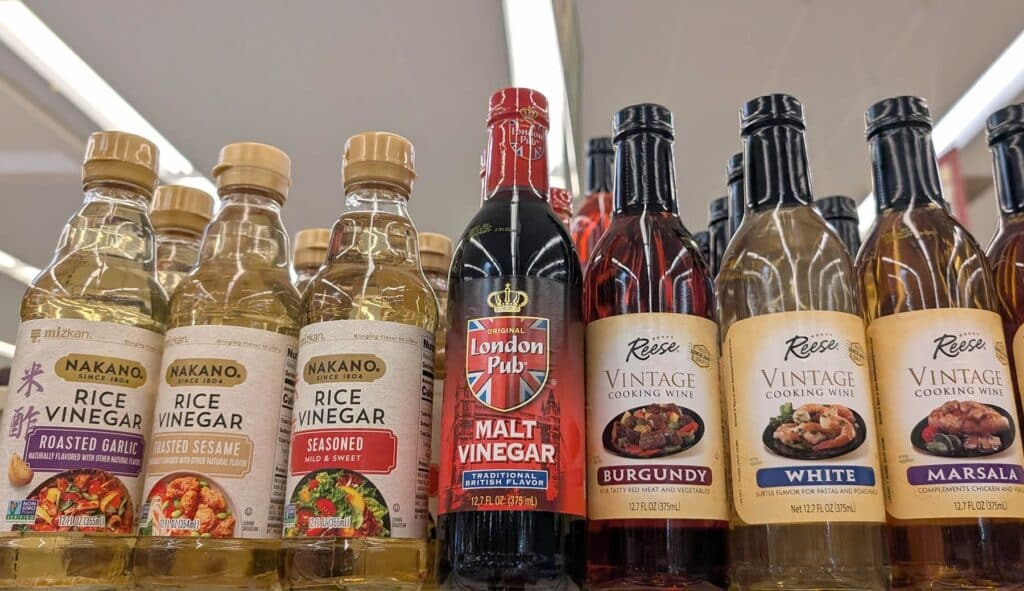
While malt vinegar is commonly associated with fish and chips, its unique nutty flavor and mild acidity can add an interesting twist to various recipes. It might not be an exact substitute for sherry vinegar due to its distinct flavor profile, but it can work well in hearty dishes, dressings, and marinades.
- How to substitute: Use 1:1. For a softer profile, dilute 3 parts malt vinegar to 2 parts water.
- Best uses: Cabbage slaws, mushroom marinades, roasted potatoes, hearty dressings, pan sauces for pork.
- Skip it when: The malt note would compete with citrusy or herb-forward dishes.
11. Coconut Vinegar
Made from fermented coconut water or sap, coconut vinegar is light, gently tart, and a bit floral. It keeps sauces bright without taking over. Use it in marinades for shrimp or chicken, quick slaws, mango or pineapple salsas, and Southeast Asian–leaning dressings.
- How to substitute: 1:1 for sherry vinegar. If the dish wants a touch of nuttiness, add a pinch of brown sugar and 2–3 drops of soy sauce to round it out.
- Best uses: Stir-fries finished with a splash, cucumber salad, quick pickled shallots, vinaigrettes for tender greens.
- Skip it when: You need deep, winey complexity. It reads clean, not rich.
12. Dark Cherry Vinegar
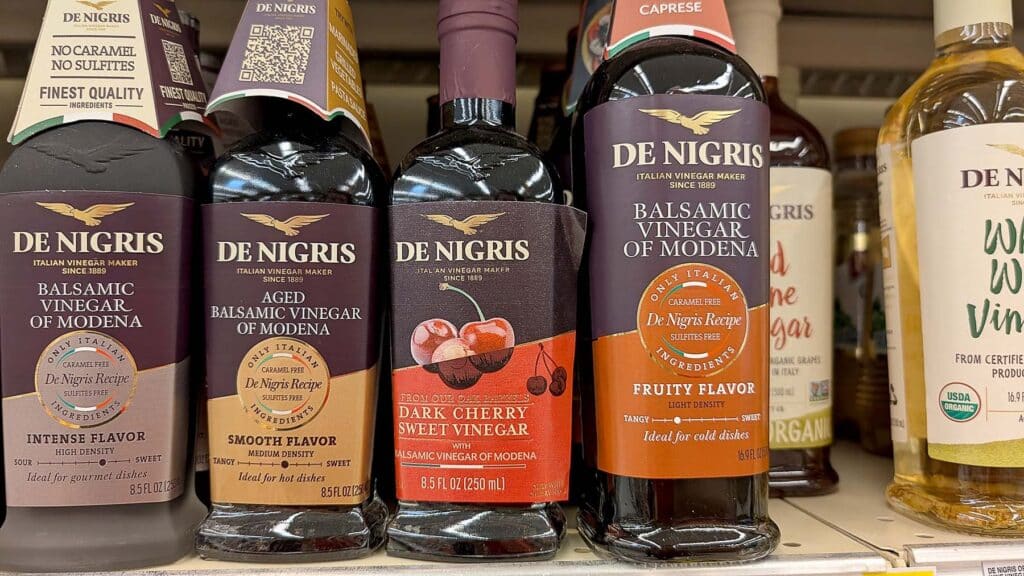
Fruit-forward and tangy, dark cherry vinegar brings a lively kick plus a hint of sweetness. It loves anything roasted or caramelized. Think pork chops, duck, beets, and bitter greens. It also shines in pan sauces where you want a quick glossy reduction.
- How to substitute: 1:1 for sherry vinegar, then reduce any added sugar in the recipe by a small pinch. For soups or braises, cut it with a little red wine vinegar, about 2 parts cherry to 1 part red, for balance.
- Best uses: Deglazing roast pans, vinaigrettes with blue cheese or goat cheese, reductions for pork tenderloin.
- Skip it when: You want a strictly neutral acid. This one likes attention.
13. Tarragon Vinegar
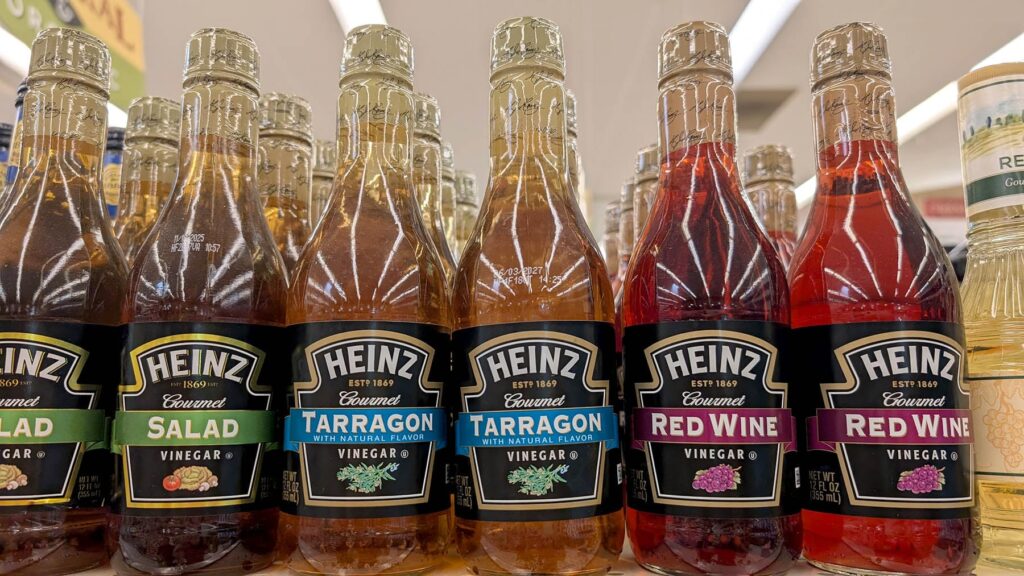
White wine vinegar infused with tarragon brings soft anise notes and a garden-fresh edge. It is classic with chicken, seafood, and anything eggy. If your recipe leans French, this fits like it was born there.
- How to substitute: 1:1 for sherry vinegar. Start small in soups and stews, then taste and adjust. The herb can sneak up on you.
- Best uses: Béarnaise bases, chicken salad, potato salad, green salads with chives, finishing splash for sautéed mushrooms.
- Skip it when: The dish already has strong herbs or licorice notes. You want harmony, not a herb pile-up.
14. Salad Vinegar
“Salad vinegar” is usually a milder, neutral vinegar, often around 4% acidity. That lower punch makes it friendly for everyday dressings and slaws, and it plays nicely with delicate greens.
- How to substitute: Use 1¼ to 1½ times the amount of salad vinegar to match the acidity of sherry vinegar. If yours is a seasoned variety with added sugar or salt, dial back those in the recipe.
- Best uses: Coleslaw, three-bean salad, tomato-cucumber salads, quick vinaigrettes you do not want to taste harsh.
- Skip it when: You need deep, nutty complexity or a stronger wine note. This one is easygoing on purpose.
Non-Alcoholic Substitutes:
For those avoiding alcohol, there are non-alcoholic sherry vinegar substitutes available in some specialty stores. These vinegars are crafted to mimic the flavor of sherry vinegar while omitting the alcohol content. They can be an excellent option for those seeking the taste of sherry vinegar without the alcoholic component.
Combinations and Experiments:
Don’t be afraid to mix and match different vinegars or other ingredients to create your own unique substitute for sherry vinegar. For example, combining red wine vinegar with a touch of balsamic vinegar can yield a similar flavor profile. Similarly, blending rice vinegar with a dash of apple cider vinegar can provide a balanced substitute. Let your taste buds guide you and have fun exploring new flavor combinations.
Sherry Substitute in Cooking:
When it comes to cooking, the purpose of using sherry vinegar is often to add depth and complexity to dishes. While the acidity of vinegar can be replicated to a certain extent, capturing the unique flavor of sherry wine can be more challenging. However, there are alternatives that can mimic the flavor profile of sherry when used in cooking. One such substitute is a combination of dry white wine and vinegar. By mixing equal parts of dry white wine and a suitable vinegar, such as white wine vinegar or apple cider vinegar, you can achieve a similar flavor to sherry. This combination works well in sauces, stews, and braised dishes, providing a rich and complex taste.
Red Wine Substitute for Cooking:
In recipes that call for sherry vinegar for its fruity and acidic notes, red wine can be an excellent substitute. Red wine shares some similarities with sherry, particularly in terms of the rich and robust flavors it can impart. To use red wine as a substitute, simply replace the sherry vinegar with an equal amount of red wine. Keep in mind that the alcohol in the wine will evaporate during cooking, leaving behind the flavors. Red wine substitutes work particularly well in meat-based dishes, such as braises, stews, and sauces.
Cooking Sherry Substitute:
If you’re looking for a cooking sherry substitute, there are a few options available. Cooking sherry is a fortified wine, similar to regular sherry, but typically of lower quality and salted for preservation. To replicate the flavors of cooking sherry, you can use a combination of white wine and a touch of salt. This combination will provide the acidity and depth needed in recipes that call for cooking sherry. Another option is to use dry vermouth, which has a similar flavor profile to dry sherry and works well in recipes that require a fortified wine.
White Wine Substitute:
White wine is a versatile ingredient commonly used in cooking. It can provide acidity, depth, and flavor enhancement to various dishes. As a substitute for sherry vinegar, white wine can be used in recipes where the vinegar’s tanginess is not crucial. It works well in sauces, marinades, and braised dishes. When using white wine as a substitute, opt for a dry white wine, such as Sauvignon Blanc or Pinot Grigio, to avoid introducing excessive sweetness to the dish.
Health Benefits of Sherry Vinegar Substitutes:
While sherry vinegar itself offers some health benefits due to its acetic acid content, many of its substitutes also possess their own unique properties. For instance, apple cider vinegar is renowned for its potential to aid digestion, promote weight loss, and regulate blood sugar levels. Balsamic vinegar contains antioxidants that may help reduce inflammation and support heart health. Red wine vinegar, derived from red grapes, contains compounds that are believed to have antioxidant and anti-inflammatory effects. By incorporating these sherry vinegar substitutes into your cooking, you can enjoy their potential health benefits as well.
Sherry Vinegar Substitutes in Salad Dressings:
Sherry vinegar is a popular choice for salad dressings due to its balanced acidity and flavor. However, when sherry vinegar is not available, several alternatives can deliver equally delicious dressings. One option is to use a combination of red wine vinegar and a sweetener, such as honey or maple syrup, to achieve a similar flavor profile. Another alternative is to use a blend of white wine vinegar and a touch of lemon juice, which will add brightness to the dressing. Experiment with different combinations to find your preferred substitute that complements your salad ingredients.
Sherry Vinegar Substitutes in Marinades:
Marinades are a great way to infuse flavor into meats, vegetables, and tofu. Sherry vinegar is often used in marinades for its ability to tenderize and enhance the taste of the ingredients. To substitute sherry vinegar in marinades, consider using rice vinegar or red wine vinegar, depending on the desired flavor profile. These substitutes can provide the necessary acidity and contribute to the overall taste of the marinade. Additionally, you can experiment with different combinations of citrus juices, such as lime or orange, along with other vinegars to create unique and flavorful marinades.
Sherry Vinegar Substitutes in Sauces and Reductions:
Sherry vinegar is frequently used in sauces and reductions to balance flavors and add complexity. When you need to replace sherry vinegar in these applications, consider using a combination of red wine vinegar and a sweetener, such as brown sugar or honey. This combination can help replicate the sweetness and acidity of sherry vinegar. Another option is to use balsamic vinegar, which offers a rich and sweet flavor that can enhance the depth of your sauce or reduction. Remember to taste and adjust the seasonings accordingly when using substitutes to achieve the desired balance.
Sherry Vinegar Substitutes in French Onion Soup:
French onion soup is a classic dish known for its deep, savory flavors. Sherry vinegar is often added to the soup to provide a touch of acidity that complements the richness of the caramelized onions. To substitute sherry vinegar in French onion soup, try using red wine vinegar or white wine vinegar, depending on your preference. These vinegars can add a tangy note that balances the sweetness of the onions. Alternatively, you can replace the sherry vinegar with a dry white wine to maintain the complexity of flavors. Adjust the amount according to your taste and enjoy a delicious bowl of French onion soup.
Exploring Different Vinegar Flavors:
While searching for a sherry vinegar substitute, take the opportunity to explore the diverse flavors of other vinegars. Vinegar varieties, such as rice vinegar, apple cider vinegar, balsamic vinegar, and red wine vinegar, each possess distinct characteristics that can enhance your culinary creations. Embrace the versatility of vinegars and experiment with different flavors to find the perfect substitute for your specific recipe. Whether you’re looking for a milder tang or a bold and robust note, there’s a vinegar out there to suit your taste.
Incorporating Other Ingredients for Flavor Enhancement:
In addition to vinegar substitutes, various ingredients can be incorporated into your recipes to elevate the flavors and mimic the complexity of sherry vinegar. For example, adding a splash of citrus juice, such as lemon or lime, can provide brightness and acidity similar to sherry vinegar. Fresh herbs, such as tarragon or thyme, can contribute aromatic notes and depth. Additionally, using a high-quality olive oil can bring richness and smoothness to dressings and marinades. Be open to experimenting with different ingredients to achieve a well-balanced and flavorful substitute.
Sherry Vinegar Substitutes in Non-Alcoholic Recipes:
For individuals who prefer to avoid alcohol entirely or need non-alcoholic options, there are substitutes available to recreate the flavors of sherry vinegar without the alcohol content. Non-alcoholic cooking wines, such as non-alcoholic sherry or non-alcoholic white wine, can be used as substitutes. These products are specifically crafted to mimic the flavors of their alcoholic counterparts, making them suitable for individuals who want to enjoy the taste of sherry vinegar in their recipes without the alcohol.
While sherry vinegar offers a distinctive flavor, there are numerous substitutes that can work beautifully in your recipes.
With these alternatives at your disposal, you can confidently explore the world of vinegars and enhance your culinary creations.

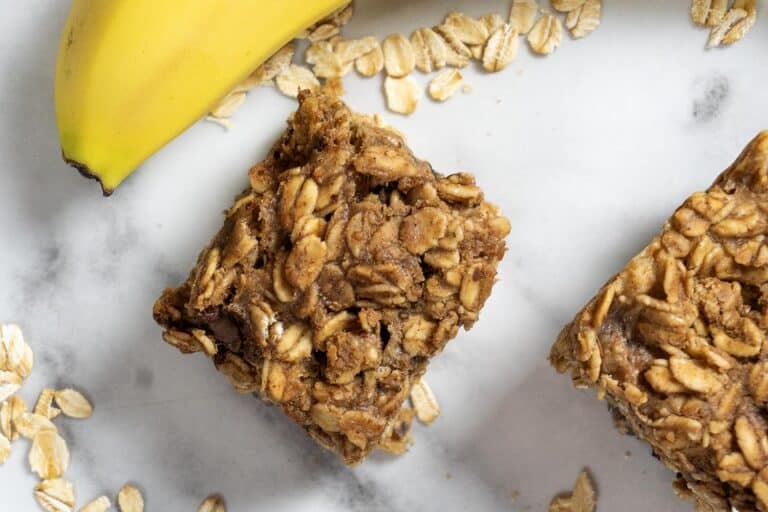
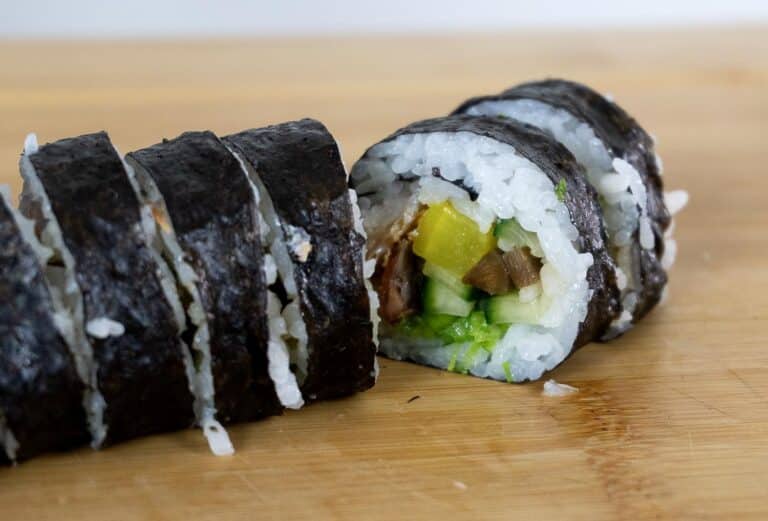
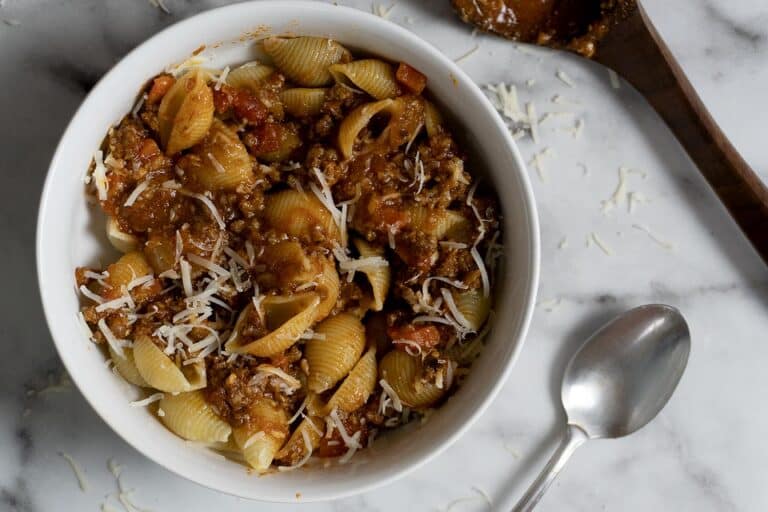

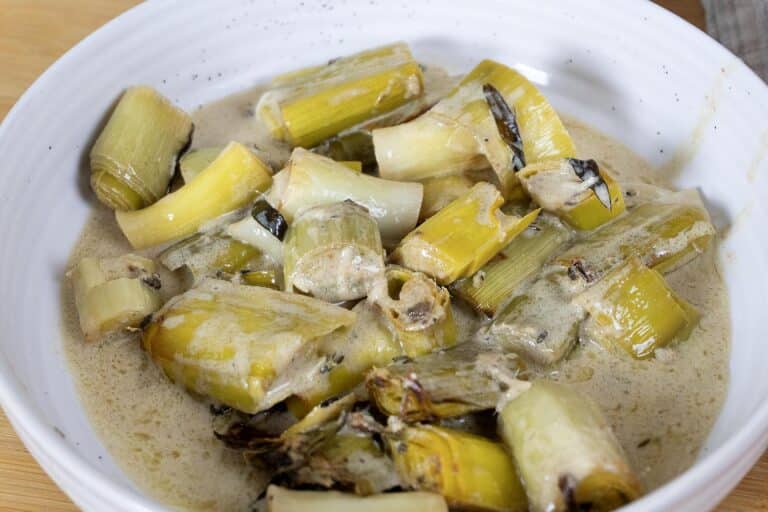
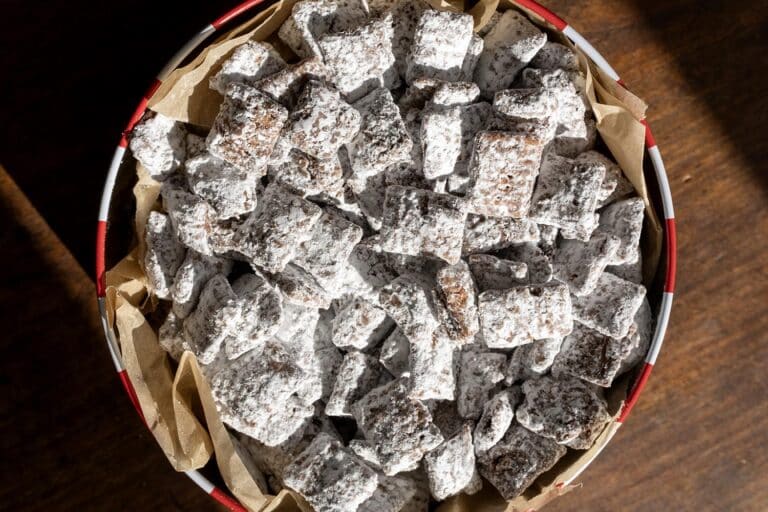
These are great alternatives(and suggestions). Great article!